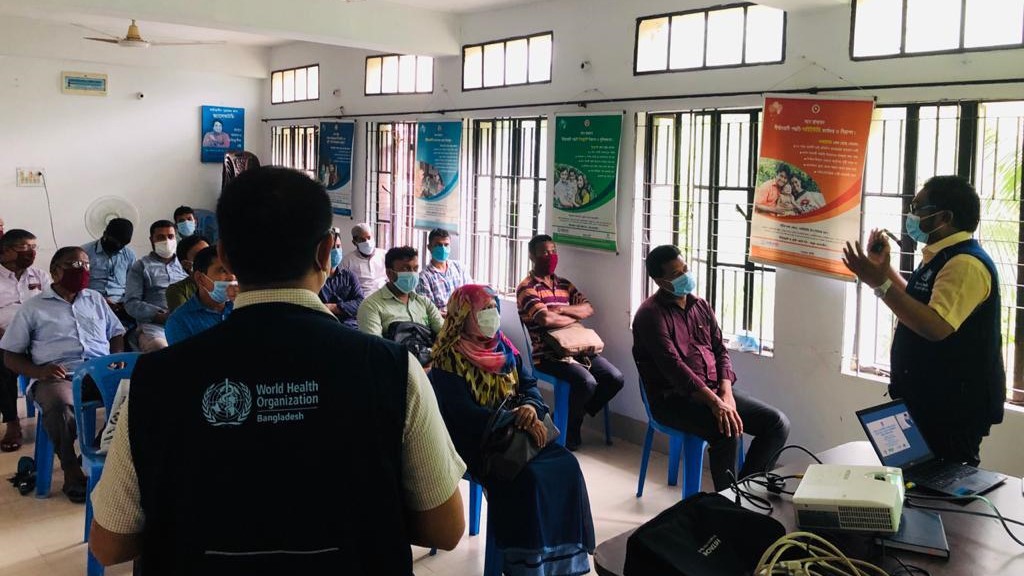WHO supports the Government to fully resume in a safe manner the immunization activities disrupted by COVID-19 and trains vaccination health workers in infection prevention and control (IPC) measures. Since July 2020, the WHO Surveillance and Immunization Officers with the support of EPI have trained nearly 20000 immunization health workers and aim to reach 26500 in all districts and City Corporations by the end of October.
“Immunization activities have been among the first essential health services to be fully resumed after the lockdown. Expanded Program on Immunization works closely with WHO and health partners to ensure that vaccination is conducted in a safe manner that prevents the spread of the virus during immunization sessions, for the benefit of service receivers and as well as service providers.” Says Dr Mowla Baksh Chaudhury, Program Manager, EPI, DGHS.
 Photo: WHO Bangladesh
Photo: WHO Bangladesh
The trainings focus on precaution measures such as hands hygiene, mask wearing, environmental cleaning and crowd management techniques to maintain physical distance during waiting time for immunization and are addressed to health assistants, vaccinators and their first line supervisors. For this activity WHO developed an interactive training package that includes multi-media tools, role plays, display of good practices etc.
 Photo: WHO Bangladesh
Photo: WHO Bangladesh
According to service utilization data from the national Management Information System (MIS), the number of immunization sessions dropped by 18% in April 2020 and by 22% in May 2020. Furthermore, routine immunization coverage for Penta third dose and Measles and Rubella (MR) first dose of vaccine was almost 50% lower in April 2020 as compared to the same period in 2019.
To avert further setbacks in routine immunization, the Government of People’s Republic of Bangladesh in consultation with WHO and UNICEF has issued national guidelines on the continuation of immunization during COVID-19 in last April. The guidelines include recommendations for line listing children who have missed or not completed their vaccinations and for strengthening immunization monitoring developed tools e.g. the dashboard, vaccine alerts. These measures will build on the high demand for vaccination that exists in the country despite the current challenges.
“We must ensure that the generation demand for vaccination is met with high standards of infection prevention and control measures from immunization staff. This will not only avert the spread of the COVID-19 but will also consolidate the trust of the communities that vaccination is safe.” says Dr Rajendra Bohara, Immunization and Vaccine Development Team Leader, WHO Bangladesh.
WHO remains committed in supporting Government of People’s Republic of Bangladesh to further strengthen immunization activities in the country, maintaining the past achievements and continuing on the pathway for achieving at least 95% full vaccination coverage among under one year children at national level.
